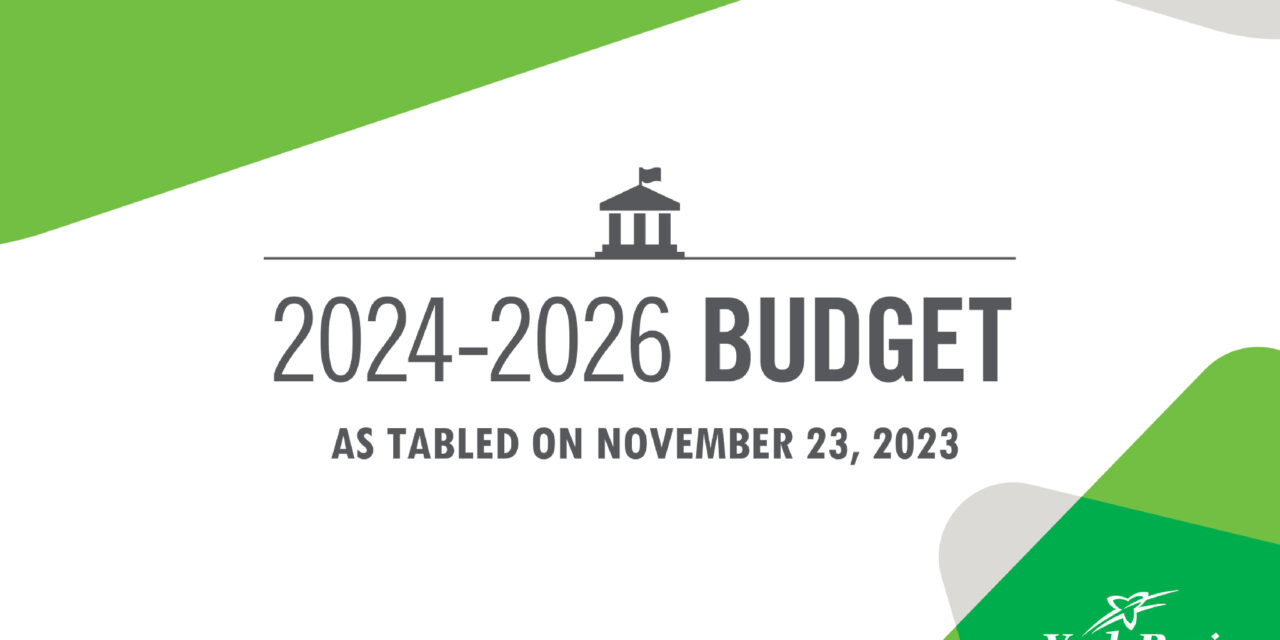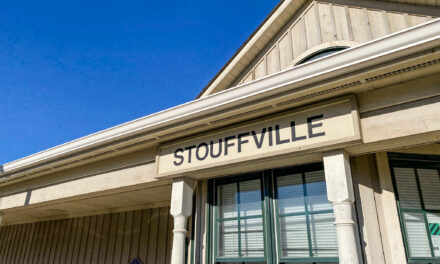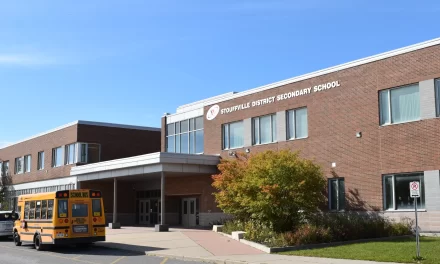- York Regional Council received the tabled 2024-2026 budgets today. They represent $3.2 billion in operating costs and $1 billion in capital projects.
- The budgets seek a 2.75% Regional property tax increase to support day-to-day operations through 2024.
- An additional 1% capital levy, first put in place in 2022, would continue to support York Region’s funding portion for the Yonge North subway extension.
- Tax revenue distribution is allocated as follows:
- Public works receives 33%, assisting with roadways, water provision, wastewater treatment, and transit
- York Region Police receives 29%.
- Community and Health Services receives 20%, supporting shelter, public housing, and public health services.
- Government operations receives 16%, funding corporate management and financial initiatives.
- The remaining 2% is allocated to external partners and other expenditures, such as the York Region Rapid Transit Corporation, YorkNet, and courts and tribunal services.
- The complete 2024 budget book can be found here.
- Local residents wishing to comment on the budgets can do so by emailing Mayor Lovatt, who serves as Stouffville’s Regional Council representative.
- Comments can also be provided via a delegation at the December 7 Committee of the Whole Budget Presentations meeting. The registration form to do so is provided in the aforementioned link and must be submitted by 12 p.m. on December 6.
- Regional Council will finalize the budgets at their December 21 meeting.
The 10-year capital plan has grown by $1.7 billion over the 2023 budget. This is in response to new provincial housing targets and infrastructure servicing needed for northern York Region communities. As part of this, the Region is hoping to support $4 billion in roadway and transit infrastructure and $4.4 billion in water and wastewater servicing.
Staff and Regional Council members, on numerous budgetary concerns across the Region’s departments, expressed concern with the lack of funding coming from the Federal government and revenue impacts stemming from the Ontario government’s Bill 23. The annual collection of Development Charges, a crucial funding mechanism for capital projects, is anticipated to be lower than initially expected due to new Provincial policies. That forecast is based on an expectation that the Region will meet at least 60% of its municipalities’ housing commitments.
Additionally, concerns were raised regarding the Federal Government’s lack of support for York Region through its Housing Accelerator Fund. The related funding is instead provided directly to the Region’s lower-tier municipalities. Mayor Lovatt, who serves as Vice-Chair of Housing York, specifically highlighted the need for additional Federal assistance in bolstering Regional affordable housing initiatives.
This shortage of funds and revenues could have significant implications for taxpayers in the coming years as the Region strives to support its objectives and adequately meet the demands of growth. “A key trend over the remaining three years of the current four-year budget is a gradual increase in the share of the budget supported by property taxes,” the 2024 budget book explains. ”This reflects several factors, including a lower share of funding from senior governments and the expected continuation of the special levy to build the Rapid Transit Reserve, which is for transit and other priority infrastructure projects.”
Chair Wayne Emmerson committed to greater advocacy to both government levels in this regard.
Cover imagery sourced from York Region’s 2024 budget book





